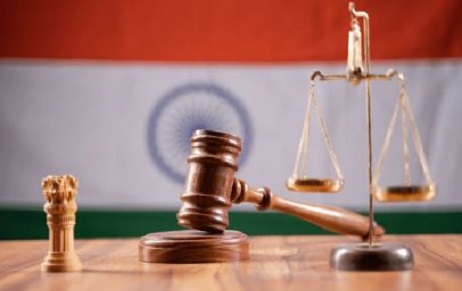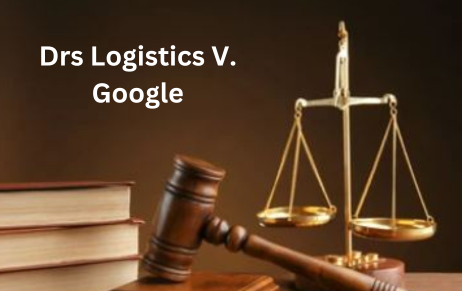ABSTRACT The project employs doctrinal research methods, i.e. secondary research which involves writing on basis…
Jaypee Infratech Insolvency Case
Introduction
The Inception of Insolvency and Bankruptcy code [IB Code] was envisaged as a historical moment in the Indian corporate sector as it is a single uniform comprehensive legislation that aims at a speedy solution to corporate insolvency through an established time bound procedure, early identification of financial failure, and other such broader reforms that aimed at increasing the ease of doing business and safeguarding the right of creditors.
However, after the implementation and a numerous judicial adjudication on the code, certain lacunas have surfaced. The Supreme Court and National Company Law Tribunal’s [NCLT] adjudication in the jaypee infratech case has created a suspicion whether all the stakeholders are covered under the ambit of the umbrella legislation i.e. the IB Code.
Facts
The Jaypee infratech project started its wish town city project in Noida. Two subsidiary companies of Jaypee group were involved, firstly the Jaiprakash Associates Limited(JAL) which allocated the letters to home buyers; secondly, Jaypee Infratech Limited (JIL) who received the payments in its bank account from the homebuyers. It collected 25000 Crore rupees from around 35000 homebuyers. However, years after its inception the project remains abandoned and merely a skelton has been built for the purpose of appeasing the homebuyers that something is built. It is alleged that in the guise of wish town city project that the money was diverted to Jaypee group’s other flagship projects such as formula one racing centre and the Yamuna Expressway. It was further alleged that the Jaypee group had assumed that it will take years for the Indian legal system to adjudicate just in case any litigation arises out of the matter.
A small group of homebuyers aggrieved by the pace of the project, approached the National Consumer Disputes Redressal Commission (NCDRC) but much to the disappointment of the home buyers, the commission did not adjudicate on the same. The Apex court decided to hear the matter through a Public Interest Litigation(PIL) that came after the adjudication by the NCLT and presently, the matter is sub-judice before the supreme court.
NCLT
The matter came up before the Allahabad bench of NCLT after a petition by the IDBI which advanced a loan that amounted to approximately 526 crore rupees to the company. The company did not pay back to the bank and since bank was a secured creditor it had the right to ask for Insolvency Resolution Process (IRP) under section 7 of the IB Code.
Jaypee group agreed to pay back the amount to the bank as it had the capacity to do so and by paying back it would be eligible for loans afresh and then it would be legally free from its obligations. As the home buyers do not fall under the ambit of secured creditors, the jaypee group did not have a legal obligation to pay them. Hence, it was a win-win situation for the company. Thereafter, home buyers and other stakeholders realized that they are not adequately represented under the IB Code, but however, home buyers are vital stakeholders in real estate industry sector, they should have been NCLT adjudicated to pay back the outstanding amount of 526 crore rupees to bank. The ruling was a huge setback to the homebuyers as there saving and investments both were jeopardized and they lost the money and remained without the home.
Supreme Court
The homebuyers then moved to the Supreme Court which recognized the glaring lacuna and error and adjudicated that the interest of the homebuyers are supreme and cannot be left unrecognized and unattended. Chief justice Deepak Misra said that “the savings of the homebuyers cannot be brushed aside by citing technical reasons”, in furtherance of such reasoning it directed Jaypee group to deposit 2000 Crore in installments to the Supreme Court’s registry. The apex court further restricted the owners of Jaypee group to not to alienate their properties. Supreme Court through such an order has lifted the veil of Jaypee group by holding it accountable for the works of its subsidiaries and it also moved beyond the principle of Limited Liability. It has asked the Insolvency Resolution professional Anup Jain to submit resolution plan within 45 days, to which IRP has asked entities and companies to invest in the infrastructure project.
Conclusion
The Supreme Court surely did save the saving of the homebuyers or at least has taken an affirmative action in that pursuit. However, the case has brought up to the surface a glaring error that IB Code do not recognize homebuyers as secured creditors and furthermore do not provide any remedy to their redressal. Another issue that surfaced was whether NCLT which was introduce to eliminate multiple judicial proceeding in different forum living up to the expectation? As in the instant case, the proceeding went on in 3 forums i.e. NCLT, NCDRC and the Apex Court. Thus it is high time for the legislators to revise and amend the IB Code and make sure that it is includes in its ambit all the stakeholders.
Author: Udit Rao, an intern at Khurana & Khurana, Advocates and IP Attorneys. Can be reached at swapnils@khuranaandkhurana.com



